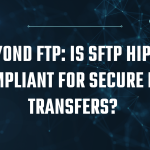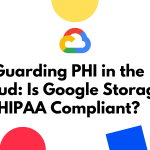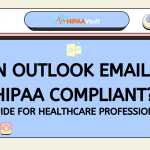
The digital landscape of healthcare is under constant threat. With data breaches costing an average of $10.93 million in the healthcare industry, it’s clear that true HIPAA compliance isn’t just about ticking boxes – it’s about cultivating a security-first mindset. But how can your organization achieve this? Let’s dive in.
The Growing Threat to Healthcare Data Security
You’ve likely heard the alarming statistics: in 2022, ransomware attacks affected 25% of healthcare organizations, with nearly half paying the ransom to recover their data. It’s like leaving your car unlocked in a high-crime area – the risks are simply too high to ignore.
Understanding HIPAA Compliance in the Digital Age
HIPAA compliance isn’t a one-time achievement; it’s an ongoing process that requires vigilance and adaptation. Think of it as maintaining a healthy lifestyle – it requires consistent effort and regular check-ups.
5 Pillars of a Strong Cybersecurity Culture
- Top-Down Cybersecurity Strategy
Cybersecurity must be woven into the fabric of your organization, starting from the top. It’s not just an IT issue; it’s a business imperative. - Comprehensive Data Blueprint
Do you know where all your protected health information (PHI) resides? Creating a clear map of your data ecosystem is crucial for effective protection. - Regular Risk Assessment and Gap Remediation
Just as you wouldn’t ignore warning lights on your car’s dashboard, you can’t overlook potential security gaps. Regular risk assessments are your early warning system. - Integration of Advanced Security Protocols
Implementing cutting-edge security measures isn’t optional – it’s necessary. This includes encryption, two-factor authentication, and robust access controls. - Ongoing Staff Training and Awareness
Your team is your first line of defense. Regular training ensures they’re equipped to recognize and respond to potential threats.
Essential Components of HIPAA-Compliant Hosting
- Business Associate Agreements (BAAs)
These aren’t just paperwork – they’re your assurance that your hosting provider understands and commits to HIPAA compliance. - Security Information and Event Management (SIEM)
Think of SIEM as your digital security camera system, constantly monitoring for suspicious activity. - Two-Factor Authentication: A Critical Security Measure
In 2023, 89% of healthcare organizations have implemented two-factor authentication. If you’re not part of this majority, you’re leaving your digital front door unlocked. - Vulnerability Assessment and Management
Regular vulnerability scans are like health check-ups for your IT infrastructure – they help you catch and address issues before they become critical.
Protecting Protected Health Information (PHI): Best Practices
Safeguarding PHI goes beyond technical measures. It requires a holistic approach that includes:
- Strict access controls
- Regular staff training on HIPAA regulations
- Secure communication channels for sharing PHI
- Comprehensive incident response plans
Embracing a Security-First Approach for True HIPAA Compliance
HIPAA compliance isn’t a destination – it’s a journey. By fostering a robust cybersecurity culture, you’re not just protecting data; you’re safeguarding patient trust and your organization’s future.Remember, in the world of healthcare data security, an ounce of prevention is worth a pound of cure. Don’t wait for a breach to take action. Start building your security culture today.
HIPAA Vault offers all these and more – they’re part of our fully managed services and come standard with all our solutions.
If you have any questions on HIPAA or on the services we can provide, please contact us! 760-290-3460.
HIPAA Vault is a low-cost leader of HIPAA compliant solutions, enabling healthcare providers, business organizations, and government agencies to secure their protected health information from data breaches, threats, and security vulnerabilities.





